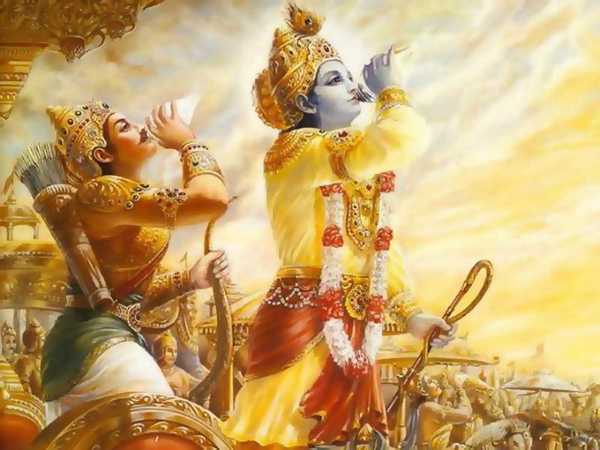Chapter 68

“Vaisampayana said, ‘After Nala, despoiled of his kingdom, had, with hiswife, become a bondsman, Bhima with the desire of seeing Nala sent outBrahmanas to search for him. And giving them profuse wealth, Bhimaenjoined on them, saying, ‘Do ye search for Nala, and also for mydaughter Damayanti. He who achieveth this task, viz., ascertaining wherethe ruler of the Nishadhas is, bringeth him and my daughter hither, willobtain from me a thousand kine, and fields, and a village resembling atown. Even if failing to bring Damayanti and Nala here, he that succeedslearning their whereabouts, will get from me the wealth represented by athousand kine.’ Thus addressed, the Brahmanas cheerfully went out in alldirections seeking Nala and his wife in cities and provinces. But Nala orhis spouse they found not anywhere. Until at length searching in thebeautiful city of the Chedis, a Brahmana named Sudeva, during the time ofthe king’s prayers, saw the princess of Vidarbha in the palace of theking, seated with Sunanda. And her incomparable beauty was slightlyperceptible, like the brightness of a fire enveloped in curls of smoke.And beholding that lady of large eyes, soiled and emaciated he decidedher to be Damayanti, coming to that conclusion from various reasons. AndSudeva said, ‘As I saw her before, this damsel is even so at present. O,I am blest, by casting my eyes on this fair one, like Sree herselfdelighting the worlds! Resembling the full moon, of unchanging youth, ofwell-rounded breasts, illumining all sides by her splendour, possessed oflarge eyes like beautiful lotuses, like unto Kama’s Rati herself thedelight of all the worlds like the rays of the full moon, O, she lookethlike a lotus-stalk transplanted by adverse fortune from the Vidarbha lakeand covered with mire in the process. And oppressed with grief on accountof her husband, and melancholy, she looketh like the night of the fullmoon when Rahu hath swallowed that luminary, or like a stream whosecurrent hath dried up. Her plight is very much like that of a ravagedlake with the leaves of its lotuses crushed by the trunks of elephants,and with its birds and fowls affrighted by the invasion. Indeed, thisgirl, of a delicate frame and of lovely limbs, and deserving to dwell ina mansion decked with gems, is (now) like an uprooted lotus-stalkscorched by the sun. Endued with beauty and generosity of nature, anddestitute of ornaments, though deserving of them, she looketh like themoon ‘new bent in haven’ but covered with black clouds. Destitute ofcomforts and luxuries, separated from loved ones and friends, she livethin distress, supported by the hope of beholding her lord. Verily, thehusband is the best ornament of a woman, however destitute of ornaments.Without her husband beside her, this lady, though beautiful, shineth not.It is a hard feat achieved by Nala in that he liveth without succumbingto grief, though separated from such a wife. Beholding this damselpossessed of black hair and of eyes like lotus-leaves, in woe thoughdeserving of bliss, even my heart is pained. Alas! when shall this girlgraced with auspicious marks and devoted to her husband, crossing thisocean of woe, regain the company of her lord, like Rohini regaining theMoon’s? Surely, the king of the Nishadhas will experience in regainingher the delight that a king deprived of his kingdom experienceth inregaining his kingdom. Equal to her in nature and age and extraction,Nala deserveth the daughter of Vidarbha, and this damsel of black eyesalso deserveth him. It behoveth me to comfort the queen of that hero ofimmeasurable prowess and endued with energy and might, (since) she is soeager to meet her husband. I will console this afflicted girl of facelike the full moon, and suffering distress that she had never beforeendured, and ever meditating on her lord.’
“Vrihadaswa continued, ‘Having thus reflected on these variouscircumstances and signs, the Brahmana, Sudeva, approached Damayanti, andaddressed her, saying, ‘O princess of Vidarbha, I am Sudeva, the dearfriend of thy brother. I have come here, seeking thee, at the desire ofking Bhima. Thy father is well, and also thy mother, and thy brothers.And thy son and daughter, blessed with length of days, are living inpeace. Thy relatives, though alive, are almost dead on thy account, andhundreds of Brahmanas are ranging the world in search of thee.”
“Vrihadaswa continued, ‘O Yudhishthira, Damayanti recognising Sudeva,asked him respecting all her relatives and kinsmen one after another.And, O monarch, oppressed with grief, the princess of Vidarbha began toweep bitterly, at the unexpected sight of Sudeva, that foremost ofBrahmanas and the friend of her brother. And, O Bharata, beholdingDamayanti weeping, and conversing in private with Sudeva, Sunanda wasdistressed, and going to her mother informed her, saying, ‘Sairindhri isweeping bitterly in the presence of a Brahmana. If thou likest, satisfythyself.’ And thereupon the mother of the king of the Chedis, issuingfrom the inner apartments of the palace, came to the place where the girl(Damayanti) was with that Brahmana. Then calling Sudeva, O king, thequeen-mother asked him, ‘Whose wife is this fair one, and whose daughter?How hath this lady of beautiful eyes been deprived of the company of herrelatives and of her husband as well? And how also hast thou come to knowthis lady fallen into such a plight? I wish to hear all this in detailfrom thee. Do truly relate unto me who am asking thee about this damselof celestial beauty.’ Then, O king, thus addressed by the queen-mother,Sudeva, that best of Brahmanas, sat at his ease, and began to relate thetrue history of Damayanti.'”




